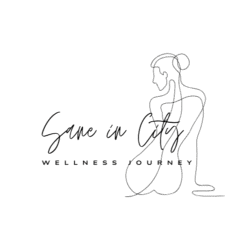Inflammation has become one of those wellness buzzwords we hear a lot—but what does it actually feel like in real life? More importantly, how do you gently reduce it without spiraling into food rules or overdoing workouts?
If you’ve been feeling bloated, puffy, sore, or just “off,” you might be experiencing low-grade, chronic inflammation. The kind that doesn’t scream, but simmers. I’ve been there—and I’ve learned that fighting inflammation isn’t about extremes. It’s about rebalancing, listening in, and giving your body room to heal.
🔥 First, What Is Inflammation?
Inflammation is your body’s natural defense mechanism—it kicks in when something needs attention, like an injury, infection, or irritant. But not all inflammation is the same.
🩹 Acute Inflammation
This is short-term and immediate—think of a swollen ankle after a sprain, or a fever when you’re fighting a cold. It’s your immune system doing its job, then backing off once the threat is handled.
🧨 Chronic Inflammation
This is prolonged, low-grade inflammation that lingers quietly in the background. You might not notice it right away, but over time, it can damage tissues and organs. It’s often linked to unhealthy lifestyle factors like poor diet, chronic stress, poor sleep, and lack of movement—and has been associated with conditions like heart disease, diabetes, autoimmune disorders, and even depression.
⚠️ Symptoms of Chronic Inflammation
You don’t need to have all of these—but even a few may be signs your body is dealing with chronic, low-grade inflammation:
-
Frequent bloating or digestive discomfort
-
Skin flare-ups or adult acne
-
Constant fatigue or brain fog
-
Joint stiffness or unexplained aches
-
Mood swings or low-grade anxiety
-
Trouble sleeping or feeling “wired but tired”
-
Thinning hair or increased hair loss
🩺 Disclaimer: Inflammation may not be the only contributor to these symptoms. If you’re experiencing persistent or severe health issues, please consult your family doctor or a healthcare provider for a thorough evaluation.
💊 How Supplements Can Help
When your body is inflamed, it’s often missing tools to cool the fire. These supplements have helped me regulate inflammation and support balance:
1. Omega-3 (Fish or Algae Oil)
Helps balance excess omega-6 from processed foods. First thing I noticed? Clearer skin and less body puffiness.
2. Magnesium Glycinate
Eases stress, supports sleep, and calms the nervous system. A more rested body = a less inflamed one.
3. Probiotic with Cranberry
Improved digestion = less bloating and gas. A healthy gut keeps the immune system in check.
4. Vitamin B Complex
Supports energy metabolism and helps with post-workout recovery, so your body can heal faster.
5. Turmeric/Curcumin (Optional Add-On)
Natural anti-inflammatory; works best with black pepper for absorption.
🥗 What to Eat (And What to Avoid)
You don’t have to overhaul your entire diet overnight. Just start swapping with intention.
Avoid or minimize:
-
Refined sugar and high-fructose corn syrup
-
Processed vegetable oils (corn, soybean, canola)
-
Excess alcohol
-
Fried foods and ultra-processed snacks
-
White bread, pastries, and sugary drinks
Add more of:
-
Fatty fish (salmon, mackerel, sardines) for omega-3s
-
Leafy greens like kale and spinach
-
Berries, rich in antioxidants
-
Nuts and seeds, especially flax and walnuts
-
Fermented foods like kimchi, yogurt, and sauerkraut
-
Olive oil, turmeric, and ginger for natural anti-inflammatory support
-
Water—seriously, hydration helps flush out toxins and reduce inflammation load
🧘♀️ How Movement Helps
Exercise is one of the most powerful anti-inflammatory tools—but it’s about balance.
Do more of:
-
Low-impact movement like walking, yoga, or swimming
-
Strength training 2–3x per week to support joints and metabolism
-
Short bursts of cardio to improve circulation without overstressing the body
Avoid:
-
Overtraining or punishing workouts when you’re already stressed
-
Ignoring your body’s signals—soreness and burnout are not badges of honor
🌬️ A Final Note: Slow Healing Is Still Healing
Reducing inflammation isn’t a 3-day detox or a quick fix. It’s a conversation with your body—one where you learn to notice, respond, and re-align over time.
Start small. Add one anti-inflammatory meal this week. Swap a supplement. Stretch for 10 minutes. It all counts.
Read more about Body Inflammation: <<Body on Fire: How Inflammation Triggers Chronic Illness and the Tools We Have to Fight It>> by Monica Aggarwal MD (Author), Jyothi Rao MD (Author).

May I simply just say what a relief to find someone that truly knows what
they are talking about online. You certainly know how to bring an issue to
light and make it important. More and more people ought to read this and understand this side of
the story. I was surprised that you’re not more popular because you certainly have the
gift.